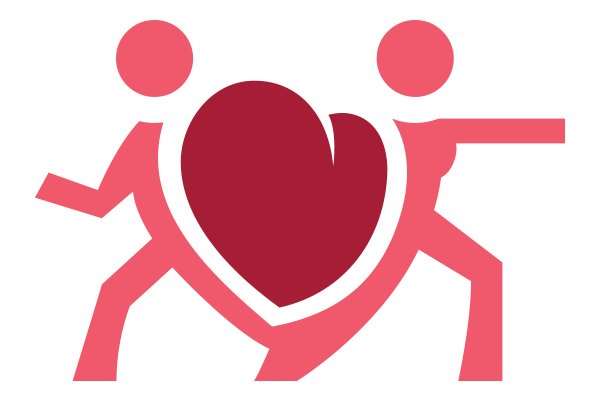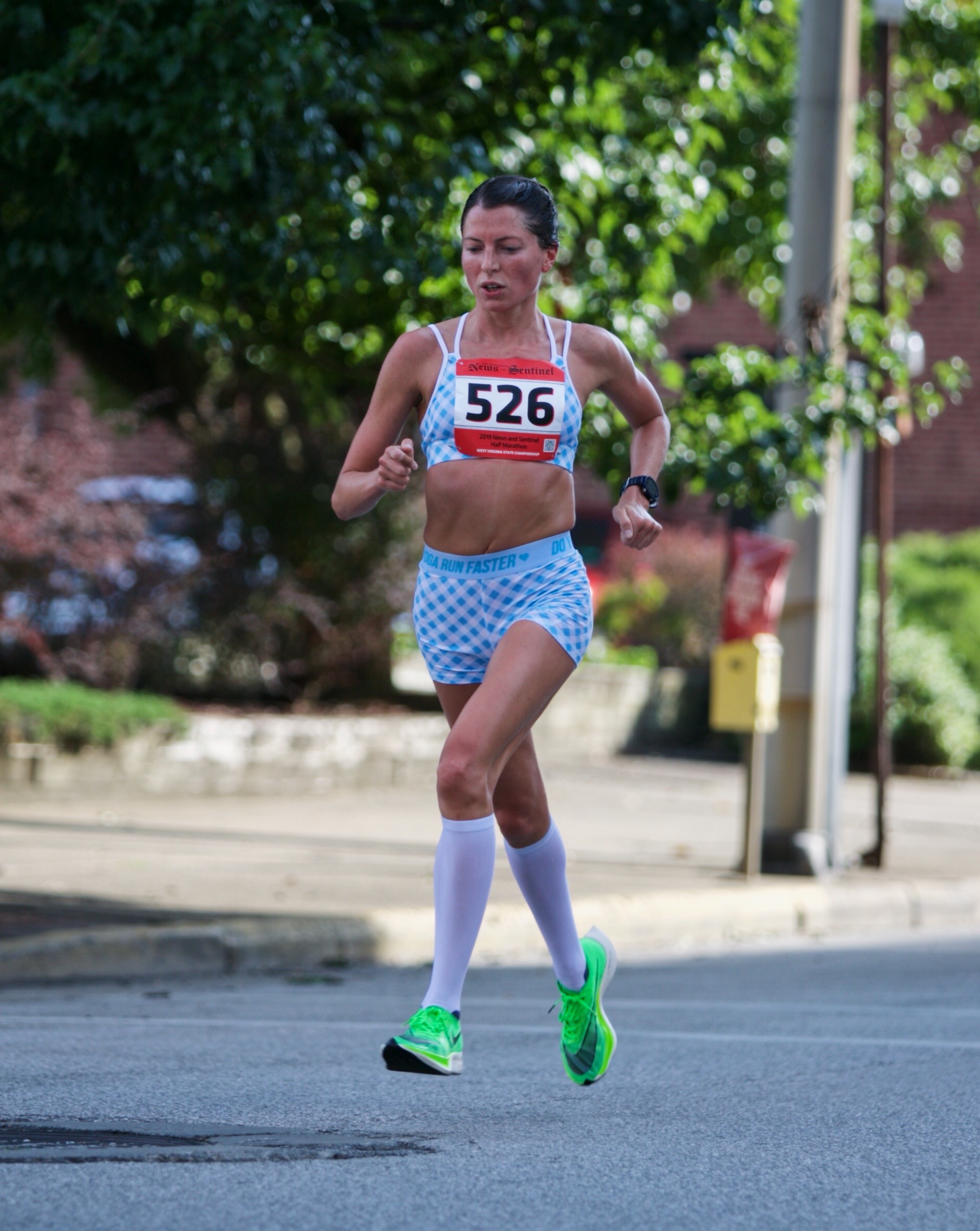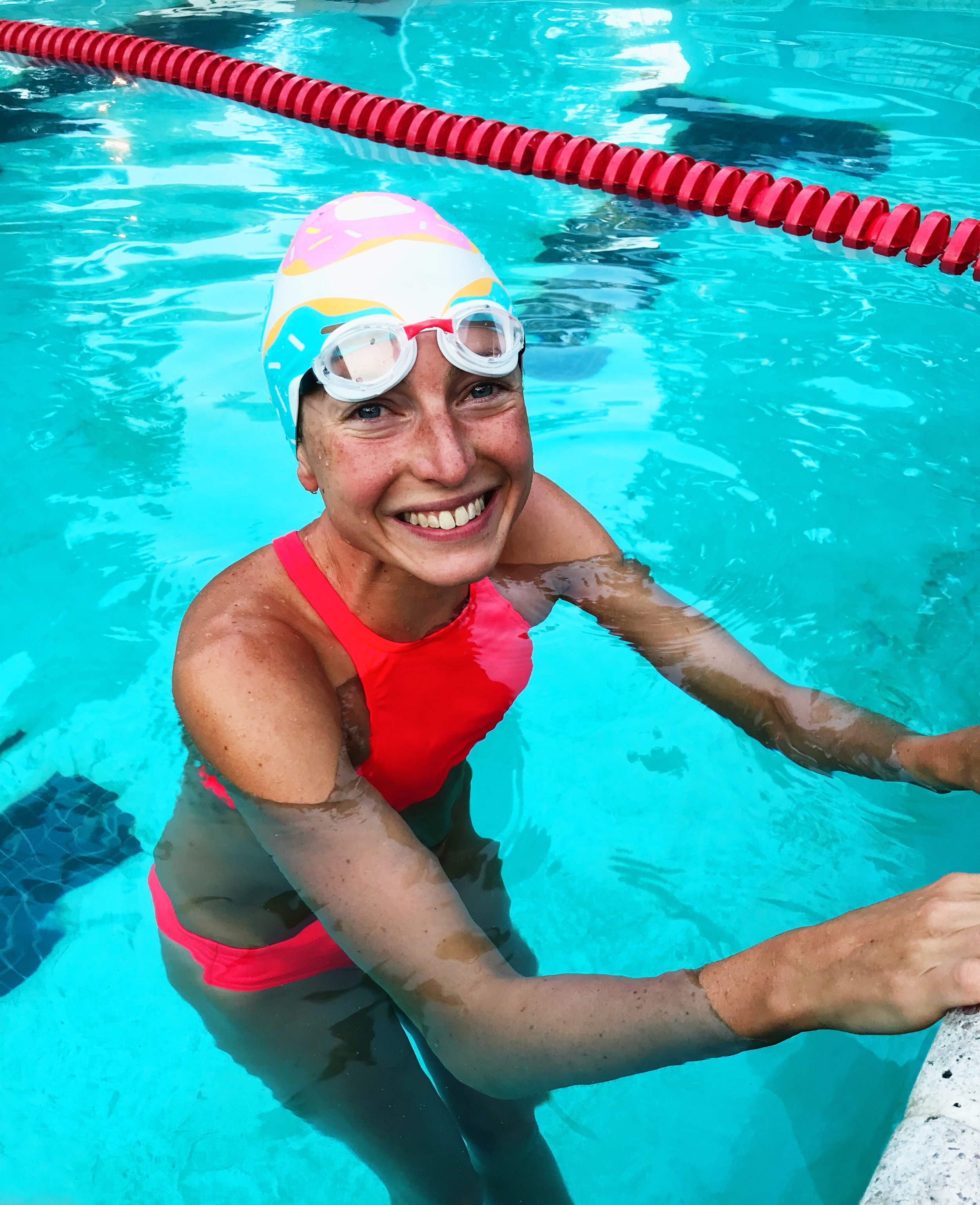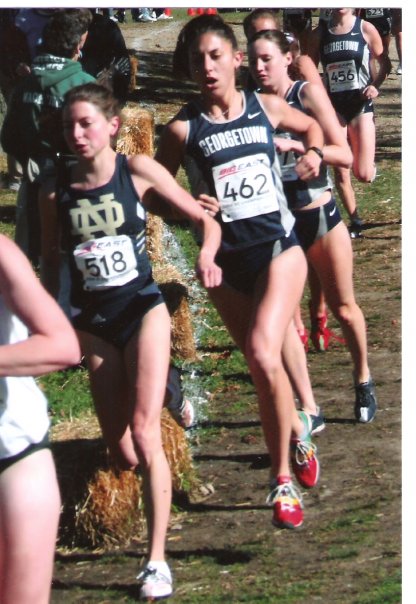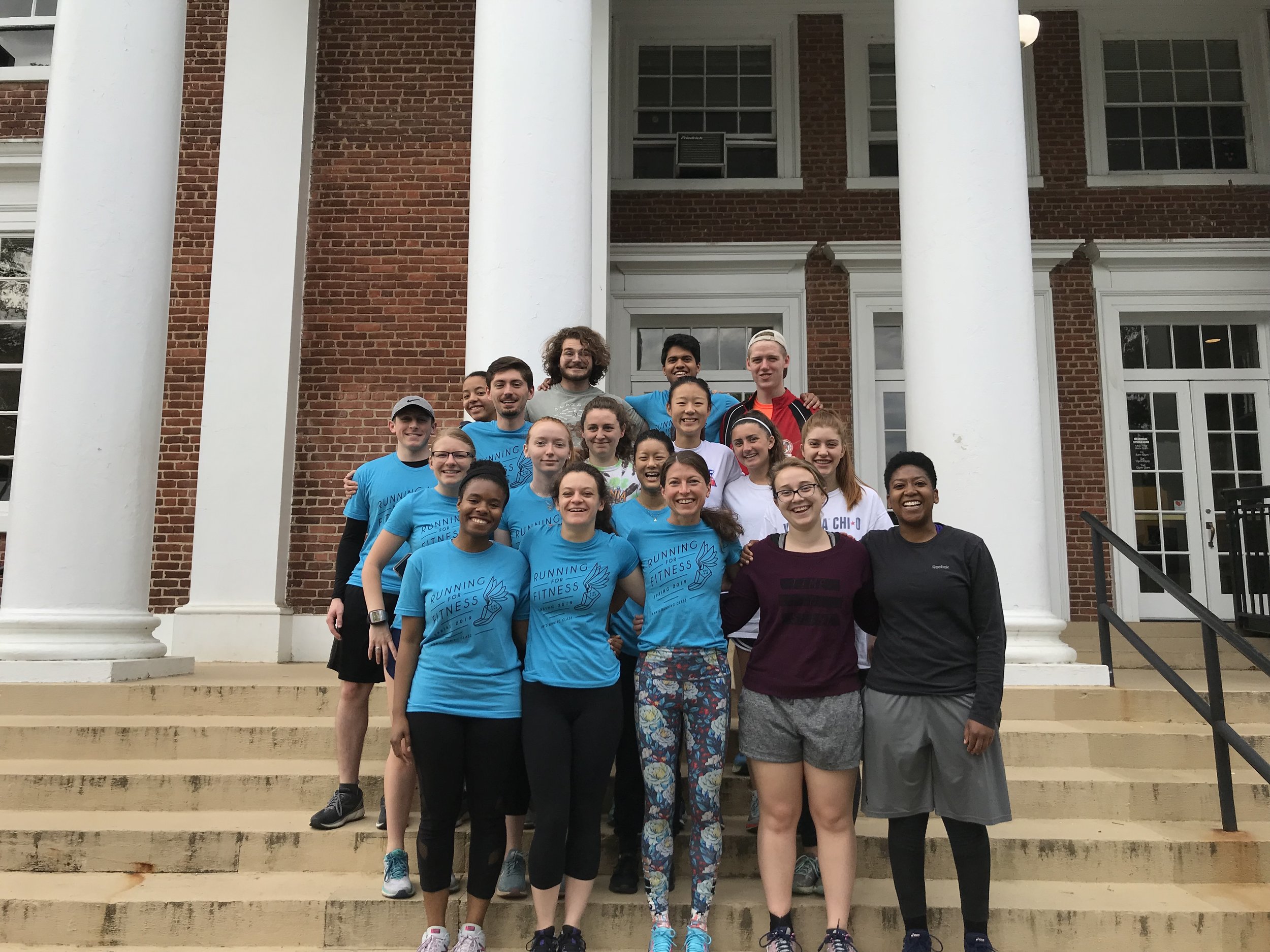Transitioning to Post-Collegiate Running
As a kid, one thing that always made me truly sad about grownups was that they seemed to not be able to do sports like they did when they were younger. And I mean this not in their actual ability to move (though sometimes that is also true after a while!), but that they often seemed to have no outlet for sports like kids do. I remember thinking when I was 15 and in high school, that I never wanted to have a life that didn’t involve swim practice, and I remember thinking later when I was 20 and in college, that I knew I would find a way to keep running and training after graduation.
How much your life continues to revolve around sports as an adult may depend upon your priorities as well as your cumulative fatigue, whether mental or physical, from training at a possibly high level for a long time as a child and into early adulthood. Some people actually are just ready to move on—to careers or families or other hobbies—but I suspect many of them just need a little break and end up really missing their sport in due time. Especially if you’re experiencing some level of fatigue from your sport after college, remember that somewhere (possibly now buried deep) in your being is a reason why your sport, no matter what it was, was something you chose to do to begin with. It is totally ok to take a break. It is also ok to just run on the weekends if that’s what you want to do. You are very much allowed to do your sports on your own terms. You also though, should stop and try to remember what it is you still love most about your sport and find a way to make that part of your life.
However, some of you may instead feel how I very much felt after my collegiate eligibility was over: the hardest part for me of running after college wasn’t related to any kind of physical or mental fatigue. It was simply weird to feel like I had lost part of my identity since I had so long thought of myself as a member of the University of Notre Dame track and cross country team. What is great now, is that I can confidently tell you I’m actually enjoying my training far, far more now 10 years after my college career than I did while I was in college! If you had asked me this right after graduation, I never would have believed you—so if you’re in the same boat, hang in there. Actually, even in looking back at some of my college photos, I am reminded about how hard so many aspects of that experience actually were (side note: being a walk on to a DI program comes with its own particular difficulties), and I’m actually so glad that that is no longer the entirety of my day-to-day existence! There is much more to your identity than being a member of a team for [insert university name here]. It might feel hard now, but it will really really get a lot better!!!
Your relationship with your sport may change and evolve as your life goes on, but you absolutely can continue to train and improve, even without the support that comes with a college team—the main trick here is knowing how to navigate your training on your own (and note that absolutely doesn’t mean you have to go it alone). The hardest part of post-collegiate athletics—I think anyway—is establishing a good, happy rhythm and routine for yourself: once you set that up, just keep calm and run (swim/bike/play soccer, etc.) on!
My Post-Collegiate Athletic Choices
For both running and swimming, I felt a sort of satisfaction from doing these sports that I absolutely couldn’t get elsewhere. I loved the challenge of pushing myself to my physical limits, of feeling really fit cardio-wise, of the structure that this exercise gave to my day (you can’t sit in a chair working all day productively!), and of the camaraderie and friends that I gained through these sports. In some ways, the choices I made after I graduated were specifically geared towards allowing me to continue to train: I applied to many, many Ph.D. programs but considered my top choices, including the University of Virginia where I went on to receive my Ph.D. in English, to be places where I could see myself having a life where running was still a key component. (It turns out that I chose well: in 2018, the Reebok Boston Track Club, a pro running group, moved to Charlottesville in large part to the conduciveness of our area to training.) What makes me laugh a little in retrospect, is how ambitious I was in thinking I would simply continue to run and train at a high intensity throughout an extremely high-level and intense Ph.D. program at the University of Virginia. That said, when your athletics continue to be important to your daily functioning, you will find a way. I am immensely proud of emerging from my Ph.D. program in surprisingly better physical shape than I went into it (and mental shape!—the academics who read this will understand!). This was no easy feat—here I will explain the adjustments that helped me the most along the way in graduate school, and that continue to help me while I’m working full-time as a teacher and running the day-to-day operations of Runners Love Yoga. My sports have always been there for me in one way or another; here is how to ensure they stay as beneficial component to a more happy, healthy, well-rounded life for you too. Just because you are a “grownup” doesn’t mean you have to give up your sports! (In some ways, I sometimes feel like this is a goal of my life—to be a grownup and do all the sports my little heart desires.)
Keep the Pros and Cons in Perspective
Below: Another definite plus to my post-collegiate athletic experience is that I can swim as much as I want! From L to R below are 1.) high school club swimming with my coach Christie, sister Jill, and coach Thad, 2 & 3.) during my freshman year at Notre Dame, I challenged one of the xc boys to a 200FR. I lost but it was a little unfair since I had run 10 miles at practice that morning and the men’s team had had the morning off! This became a fun event where (see pic 3) my teammates actually painted “Go Ann” on their stomachs for me. 4.) swimming this summer and loving my life.
Transitioning from being a full-time student-athlete to post-graduate life involves some unique challenges, no matter what your sport. Along the way, focus on the positives, what about your sport makes you feel best and happiest, and the aspects of your training which you can now control better to guide your individual success.
When running in college at Notre Dame, I always considered myself lucky to be a runner because running was a sport I could more easily do after college. My sport was so deeply engrained into my life and identity that it was nearly unimaginable that I just simply stop when I came to the end of my collegiate eligibility. While in college, it made me sad to think about how much trickier it would be for athletes in other sports, like baseball or lacrosse or hockey, to find an outlet to continue to practice and train as they had been for their entire collegiate careers!
Even as a runner, I knew I would deeply miss so many aspects of my collegiate athletic career: both on the symbolic and more practical side. Putting on that ND uniform and representing my university was simply so special to me. I used to have, no joke, recurring dreams every few years that I had somehow magically gotten more eligibility and could go back! Cleaning out my locker at the end of my career was honestly one of the worst feeling days ever.
But, post-collegiate running also was harder in a more practical sense. (To some extent, I think it is a little naive to suggest to a runner “oh, you can easily run on your own after college!”—to me, this feels like when I was an Engineering major for 3 semesters and professors would tell us constantly that we could do the Humanities just as much as English majors in our “spare time.”) After college, I would no longer have a structured practice six days of the week around which I framed the rest of my time. I would also no longer have a built-in support system of teammates with whom to train, commiserate, and laugh. On the less important but nonetheless helpfully supportive side, I would also no longer have a bus to handily transport me to away meets, the highly anticipated load of “issue gear” that we got each September, my shoes replaced whenever they needed to be replaced, the free fruit and Clif bars after each lift, or access to state of the art training room facilities. So, yes, I could mostly definitely continue to run and train after college, but the chances were high that this post-collegiate experience would not look very much at all to what I was accustomed.
That all said, in your post-collegiate athletics life, you have to focus on the aspects of your training that you now may be better able to control: if I need to take a recovery (or alternatively a harder) day, I can do that without having to be pulled along by whatever the team is doing. If I actually really don’t respond that well to high intensity track workouts, hey, I can do other workouts now! You might not have your college teammates anymore, but you can still keep in touch with them, and now you can run with anybody you like whenever it suits you! You can wear whatever brand of shoes you want! You also can train for whatever distance or race you would prefer. Especially in the time right after your college career, keep these pluses in your mind when you feel sad and nostalgic. They will go a long way to help you out, as will the tips that helped me just below!
How to Successfully Do All the Sports You Want After You Graduate
Below L to R: 1.) Running at Big East XC Champs my senior year at Franklin Park where I got my first All-Big East Honors, 2. our team post-season party my sophomore year, 3.) at National Catholic XC my sophomore year, 4.) this past spring with my Running for Fitness class at the U. of Virginia.
No matter what level of sports you practiced in college or high school, and no matter what perks these experiences did (or did not!) bring with them, the chances are high that these experiences also trained you very well to continue your athletics in the “real world.”
1. Continue to be productive with your time by giving yourself the gift of structured time for workouts.
One advantage you have as a student-athlete is that you have been trained throughout your career to make the very most of your time. You may not have even realized it at the time, but chances are, you’re far, far more productive with your time than students who are not athletes. (I actually used to wonder what I would do with myself without practice! It didn’t really ever take me that long to do any homework! I guess at Notre Dame I just would have gone to more Mass??! Would I have joined 5 clubs? Who knows!?) This is probably one of your greatest strengths in continuing athletics for the rest of your life, throughout every stage of your life: you know how to fit more into your day, and your exercise break will make you more proficient and efficient at your academics.
The best way to continue this productivity from your college training life is to purposefully structure some of your time and set it aside just for workouts. A very key point here is that you should factor some kind of accountability into this, ideally by meeting other people for said workout. You should make it difficult for you to skip this workout because it is already at a set time—you will have to stop what you’re doing and just go get those endorphins. I know that if I did not do this, I have a tendency to just keep working and working, writing, etc. until I can’t anymore, and sometimes that point of not being able to work productively also comes with the feeling of needing a physical break, not a workout: so, stop your other work before you get too tired, go do that workout, and come back refreshed and recharged instead.
2. Find good friends with whom you can train.
Being an endurance athlete can get lonely if all you do is train by yourself. In the midst of grad school, this is partially why I started doing so many races (I was racing nearly every weekend)—I was so swamped during the week that the thoughts of an interval or tempo workout alone just sounded like an unproductive way to make myself feel slower than I actually was. Instead, I would just do regular paced runs during the week, and then find a good local race on the weekend and use that for the speed component of my training. It is okay to get creative and follow a non-traditional training regime! You might find some combination that works even better for YOU. (I know I feel like I did!)
To this day, I am unsure how anyone hits any kind of speed without someone alongside to push them. Maybe I’m just too competitive, maybe I just have a lot of slow twitch…who knows? I just know I go a lot faster with other people around me, and that this is true for regular training runs too. You don’t need a lot of people to train with, just good, reliable people whose company you really enjoy! Whether you train with a local running group or one great friend or find other creative ways (like signing up for many races!), you actually have a lot of options for workout buddies!
In other words, find a new team. This doesn’t have to be an actual team, though it may be—what you need are people to keep you company and make workouts more enjoyable. No athlete is an island. You will have more fun and improve when you train with other people!
3. Structure your training to your own individual body and mind.
This is actually somewhat easier to do after college. You might not have that great ice bath or training room facilities, but you now have the experience to know what is most important for your recovery. Maybe you know you need X days of easy workouts per week, maybe you know you can’t do 400s on a Tuesday and race well on a Saturday, maybe you know that occasionally you just need a week of straight cross-training. Take some time to reflect on what benefited you most as a collegiate athlete: what worked well for you and what did not, and use your thoughts to structure your training.
If you don’t yet, I highly recommend keeping an old-fashioned written training log of your workouts. I just find writing down my workouts really satisfying, but over time, your training log can become a super useful tool in analyzing your training. I often look back at an entry for a race I’ve done for my splits or any other thoughts that might help me for that year’s race, and my weekly mileage record has been vital to safely building up my miles over time.
Post-collegiately, you can now be as structured with your training as you prefer. If you want to chase specific time or race goals, take time to map these out over your training calendar. (I actually keep a second “big picture” calendar where I pencil in anticipated mileage and races in advance best I can.) Know your body and adjust your training accordingly now that you can. Remember this is also always a learning process: sometimes you have to tweak things as you go, but over time, this does get easier to do! Balance structure and flexibility: know that adjusting is sometimes ok, and actually even better than what you had planned, but also hold yourself accountable for your workouts because this will make you happier both daily and long-term.
Basically, my 3 most helpful tips, elaborated upon above, boil down to these basic principles:
Schedule!
Find friends!
Individualize!
…and you’ll soon find your training will bring even more joy to your life than in your college years.
I know I’m loving my workouts and training life more than ever; work with what comes your way, and you can find a path that is just right for your body and mind too.
